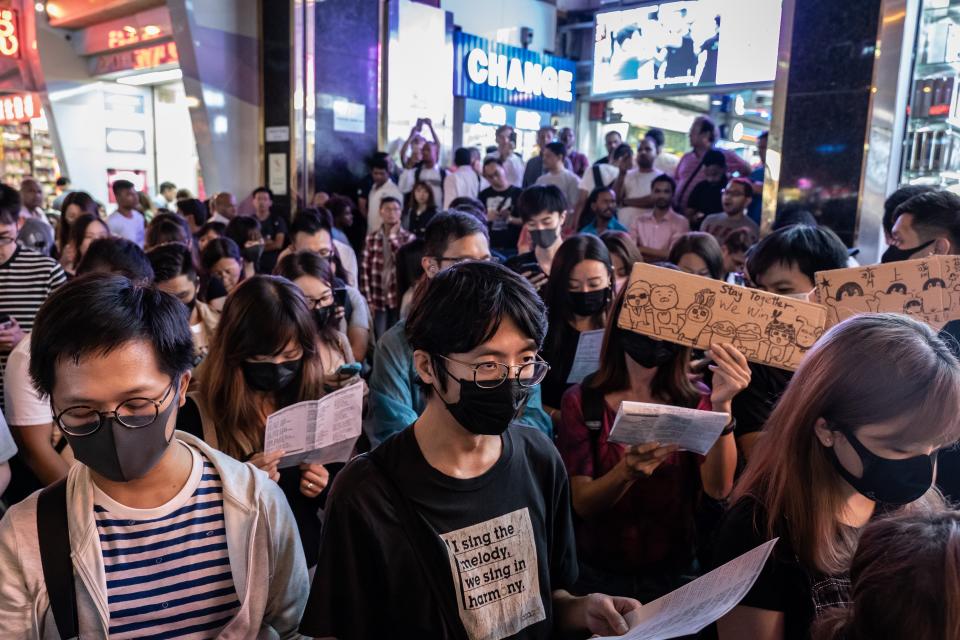Singapore doesn’t see significant inflows from Hong Kong as protests rage

By Michelle Jamrisko
Bloomberg) -- Hong Kong’s political turmoil has prompted some capital to move to Singapore though there hasn’t been a flood of inflows from the former British colony, according to Singapore’s central bank.
The city state’s banks have seen an uptick in those inquiring about how to re-allocate assets, which is reasonable to expect, Ravi Menon, managing director of the Monetary Authority of Singapore, said in an interview Tuesday.
“The smart money will stay put and watch: start planning, make inquiries, make contingency plans, but they wouldn’t be in a big rush to move,” he said. In terms of actual flows, “there are some signs of that happening. But we don’t think it’s significant or substantial,” he said.
Singapore’s officials have emphasised that the disruptions in Hong Kong aren’t helpful for the region’s economies, even as some figures suggest it’s gaining from the turmoil in its financial-center rival. Goldman Sachs Group Inc. estimates as much as $4 billion has moved from Hong Kong dollar deposits to Singapore as of August amid the ongoing protests.
Menon said that Singapore’s official read on the flows lacks granularity because it doesn’t employ capital controls and there are confidentiality constraints on accessing private banking figures.
While financial flows have probably shown a “small” increase there are no signs of acceleration, he said, declining to elaborate on an estimate. There’s been a rise of inquiries from people “about how they may want to reconfigure how their assets are deployed,” he said.
A surge in capital flows from Hong Kong would be a worrying sign for the region, according to the MAS chief. “That means things have taken a turn for the worse, and that means prospects for the rest of Asia are also taking a turn for the worse,” he said.
As for the impact of inflows on monetary policy, Menon said that managing large inflows and outflows is “part and parcel” of the MAS’s job and “not a particular challenge,” given that it’s not unusual for those flows to exceed Singapore’s gross domestic product in some months.
Foreign-currency deposits at both domestic and international banks operating in Singapore rose to S$12.8 billion ($9.4 billion) in August, according to MAS data. The bulk of the increase took place in July and August, when the figure rose a record S$5 billion in total, the data show.
© 2019 Bloomberg L.P.

 Yahoo Finance
Yahoo Finance 